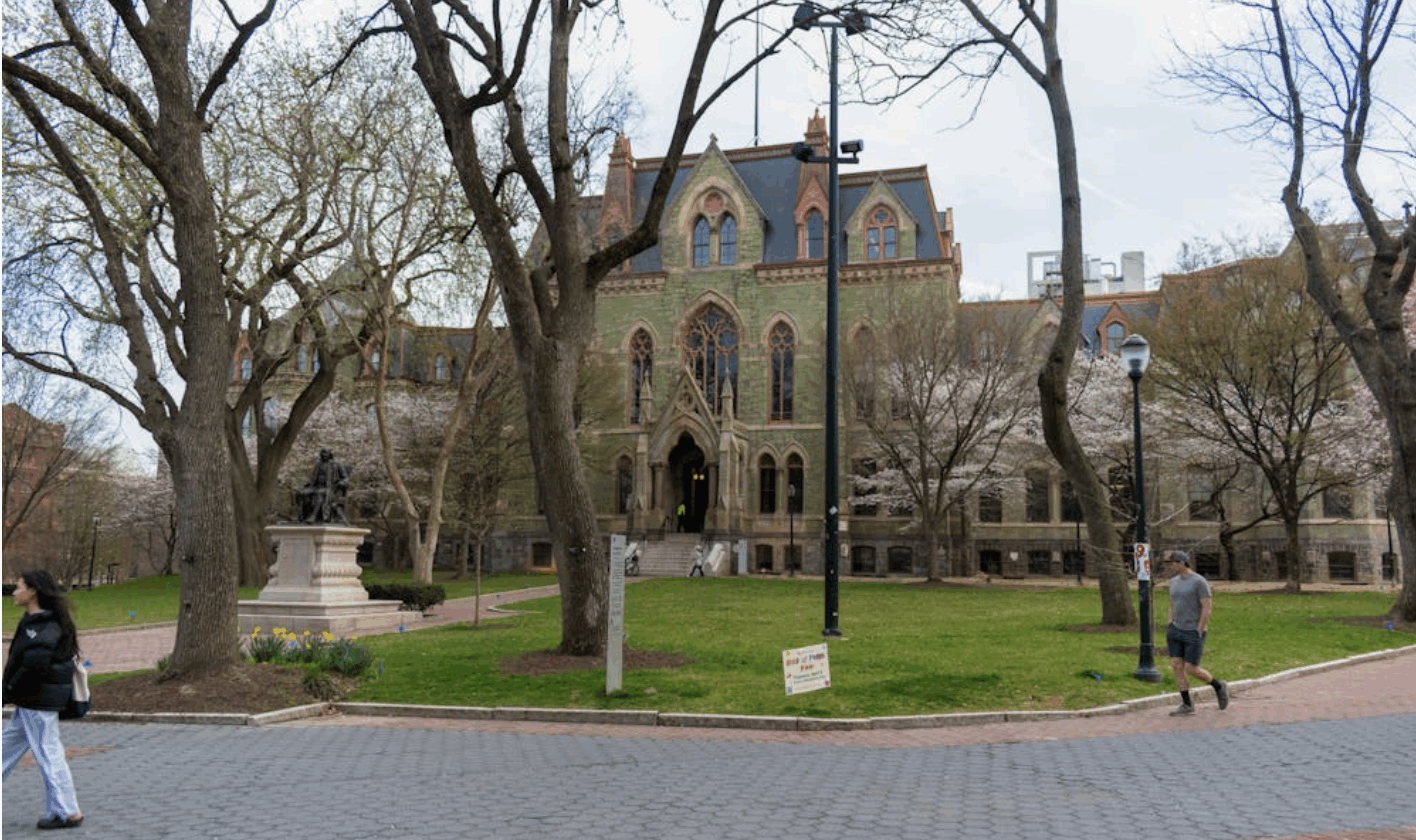The event at College Hall featured three prominent figures from think tanks and political research firms: Abigail Ball from American Compass, Judge Glock from the Manhattan Institute, and Patrick Ruffini from Echelon Insights. The discussion was moderated by Brian Rosenwald, project manager for the Red & Blue Exchange.
Rosenwald spoke to The Daily Pennsylvanian about the mission behind the Red & Blue Exchange.
“It’s about bringing diverse voices to campus and getting unique perspectives that students wouldn’t otherwise get,” Rosenwald said.
At the event, the panelists discussed populist conservatism’s rise in the United States, its current manifestations, and its future. Ruffini cautioned against conflating “the rise of personalities with the rise of ways of thinking,” noting that the movement had a long history and was not confined to one party prior to 1968 Wharton graduate and President Donald Trump’s rise to the presidency.
“I think Trump basically collected it all under the umbrella of the Republican Party, gave it voice, [and] allowed it to break through this bipartisan establishment consensus,” Ruffini added.
In his definition of populist conservatism, Glock noted immigration as a key issue for populist parties around the world, referencing Brothers of Italy and Reform UK as examples.
Part of the panel discussion focused on whether economic or cultural issues are a more significant force in shaping populist conservatism.
Ball said that “the cultural elements are important” but emphasized that “economics are really what’s driving this.” She stated that the last decade of populist conservatism was a response to the loss of “balanced trade” in the 1990s and 2000s.
“We’re seeing the American people say that they’re sick of it,” Ball said. “What we might describe as populist conservatism is really just a return to the roots of what conservatism really should be — thinking about what the American people want from the economy.”
Ruffini presented an alternate view on the importance of the economy, describing how cultural and economic issues are not “one over the other” but rather “operate very differently in the public’s mind.” He commented that, while people tend to have “very clearly defined” perspectives on cultural issues — such as abortion, gay marriage, and immigration — they have “much more loosely held” opinions on economics.
“What voters are focused on is objective economic conditions, which are obviously now filtered through the lens of partisanship,” Ruffini said. “But there is a grain of truth through these economic ratings.”
In their conversation about economics, the panelists also discussed whether “stylistic populism” is enough for Republicans to win over voters rather than “substantive economic policy,” including trade, immigration, and family policy.
“The key to Donald Trump’s political success is his ability to project confidence, even if it makes no sense,” Ruffini said.
“Being stylistically just concerned about economic bread and butter issues is very important, even if you’re not passing a huge bill that’s necessarily going to change it,” Glock said. He noted that Democrats “very skillfully” focused on cost of living issues in recent elections.
Ball added a caveat to this principle, remarking that style works in the short term but is not a long-term solution.
“I think of style as being the thing that gets you elected,” Ball said. “Actually delivering on the things that you promise — or not — is a big reason why a party succeeds over time.”

